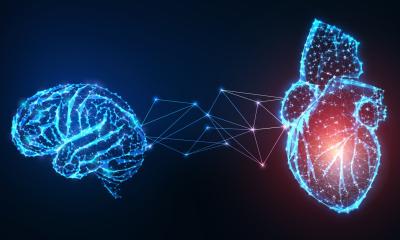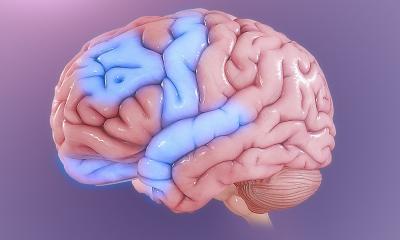© RUB, Marquard
News • Autonomous Sensory Meridian Response
ASMR videos: Why do they work?
Researchers at Ruhr University Bochum have published the first systematic review of Autonomous Sensory Meridian Response (ASMR).
Millions of people watch content creators on YouTube and social media platforms such as TikTok as they whisper soothing words, perform simulated role plays such as a visit to the hairdresser, or interact with certain objects such as the keyboard of a computer in a specific rhythm. About 25-30% of the viewers experience the Autonomous Sensory Meridian Response (ASMR) associated with well-being, a characteristic tingling sensation on the scalp and neck. Tobias Lohaus of Ruhr University Bochum, Germany, together with Professor Patrizia Thoma (also Ruhr University) and Professor Silja Bellingrath (University of Duisburg-Essen), published the first systematic review on this topic. This systematic review reveals that, among other things, this phenomenon is associated with short-term positive effects on mental health. The research team published their findings in the journal Psychology of Consciousness: Theory, Research, and Practice.
While some viewers find the videos irritating, for many people, including many students, they have become a huge part of their life – for example as a way to unwind after a hard day at university or as a way to fall asleep. But what’s ASMR really all about?

© RUB, Marquard
To find out, the researchers screened more than 1,000 articles and filtered out 54 on the subject of ASMR that had previously been published in a scientific journal after peer review by independent experts. “We worked out that ASMR is a clearly outlined phenomenon that is experienced and described by many people in a very similar way,” says Tobias Lohaus. “Experienced viewers of ASMR content also don’t seem to be guided by expectancy effects.” Specifically, for the roughly 25-30% of people who can experience ASMR, several studies showed that watching ASMR videos was associated with short-term positive effects regarding their mood, as well as with physiological changes such as slower heartbeat and lower blood pressure.
In addition, EEG studies have repeatedly shown that ASMR experience is associated with a decrease in so-called delta waves, which are usually linked to deep sleep, but most recently have also been linked to states of consciousness. “Perhaps precisely those states of consciousness that occur in a relaxed state,” Lohaus speculates. fMRI studies have repeatedly shown that, among other things, very specific brain areas are involved in the ASMR experience, in particular the anterior cingulate gyrus, which is related to attentional processes, as well as brain regions related to movement.
We haven’t yet discovered a study that demonstrated long-term effects on mental health induced by ASMR
Tobias Lohaus
“Still, it’s important to point out that we haven’t yet discovered a study that demonstrated long-term effects on mental health induced by ASMR,” stresses Tobias Lohaus. “This will require future studies that look at the effects of ASMR videos over a longer period of time and compare them to watching control videos.” The research team from Ruhr University Bochum and the University of Duisburg-Essen is already planning such a study in a broader joint research proposal.
The team laid the groundwork for their new project by publishing an ASMR study in early 2023, which showed that so-called walking tour videos, in which people film their walk through a certain area, could be suitable control videos. These videos are associated with significantly less ASMR experience compared to ASMR clips.
Source: Ruhr University Bochum
09.11.2023










